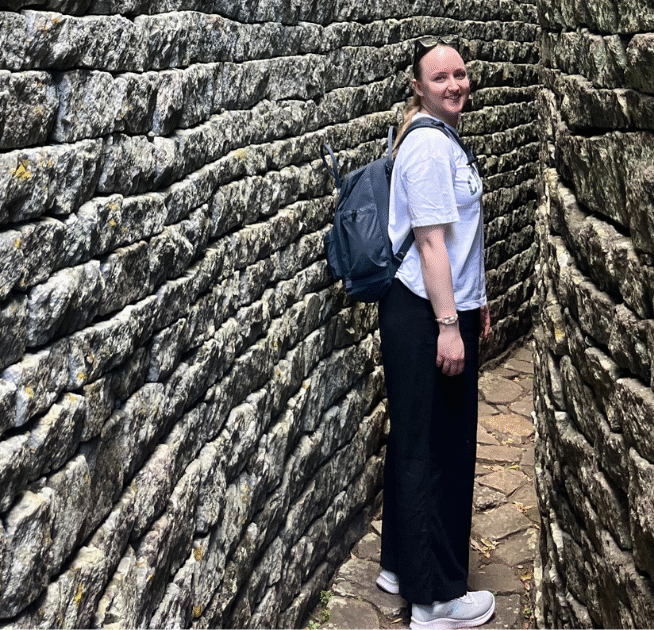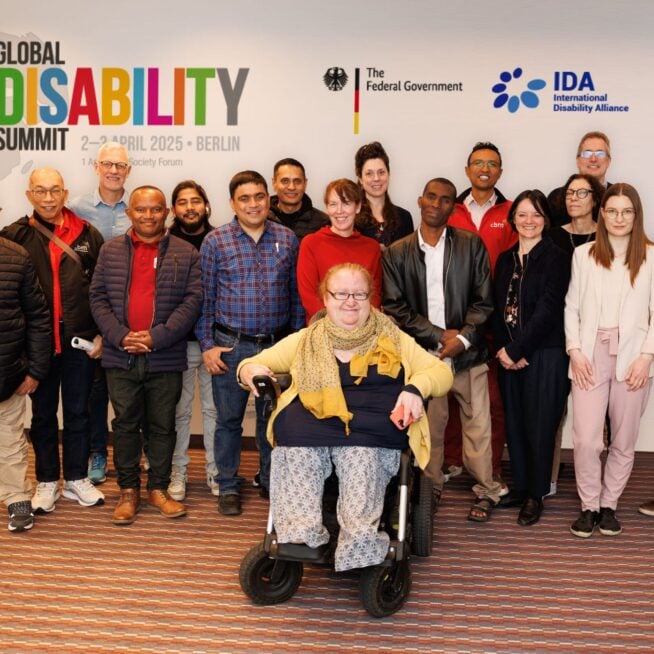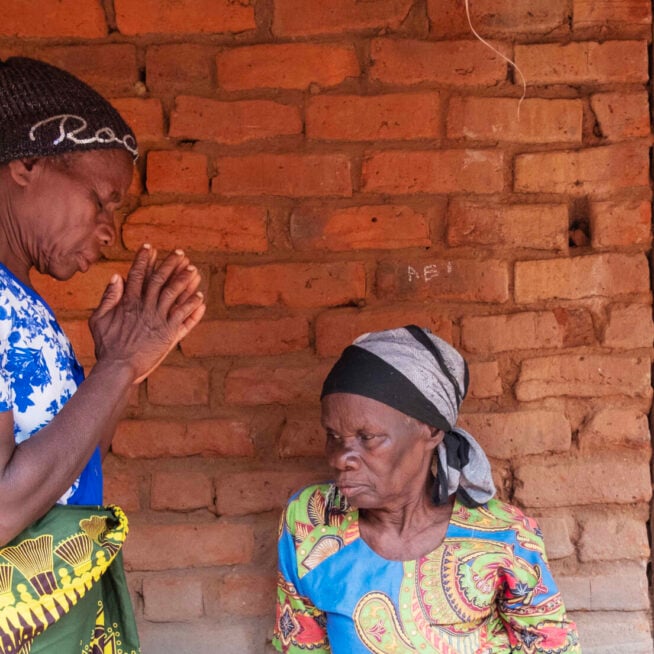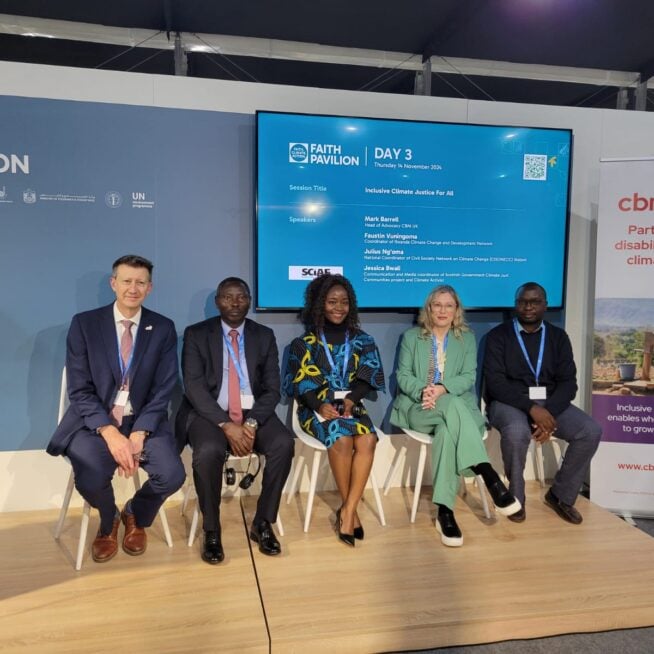Want to transform lives with us? Stay in touch and hear about our news, activities and appeals by email!
Leaving a lasting impact: Sustainable support for girls with disabilities in Zimbabwe
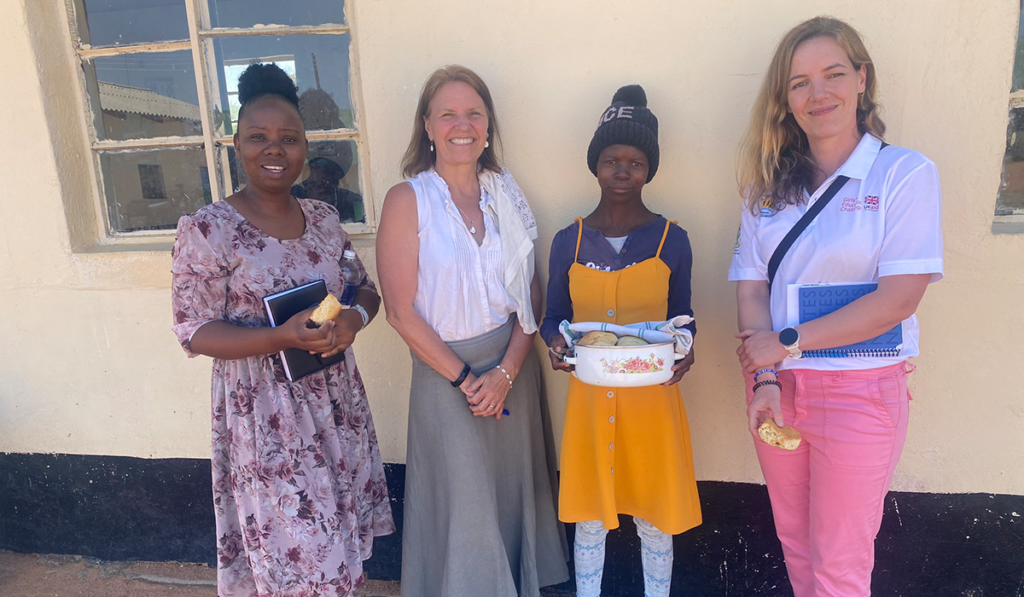
It was a bittersweet feeling returning to Zimbabwe in May to see our learning hubs, witnessing the benefits that the project has had for girls with disabilities, while also knowing that the five-year project is coming to an end in July.
Over the course of the project, Supporting Adolescent Girls’ Education (SAGE) has supported 13,460 girls to achieve improved learning outcomes and transition into formal education, training or employment. A total of 689 girls with disabilities were enrolled in the project, with CBM supporting adaptations to their learning environment, and providing assistive devices such as crutches, wheelchairs, spectacles and hearing aids. A safe learning environment allowed girls with disabilities to register strong improvements in both learning and confidence.
Empowering Girls with Disabilities
Many of the learning hubs established for this project are very rural and we spent several hours in the car to reach them. Once the girls felt comfortable with us in their classroom, a few told us that they had become more assertive and were far more aware of their rights around sexual and reproductive health (SRHR), where to access SRHR services, as well as the risks and implications related to unprotected sex and child marriage.
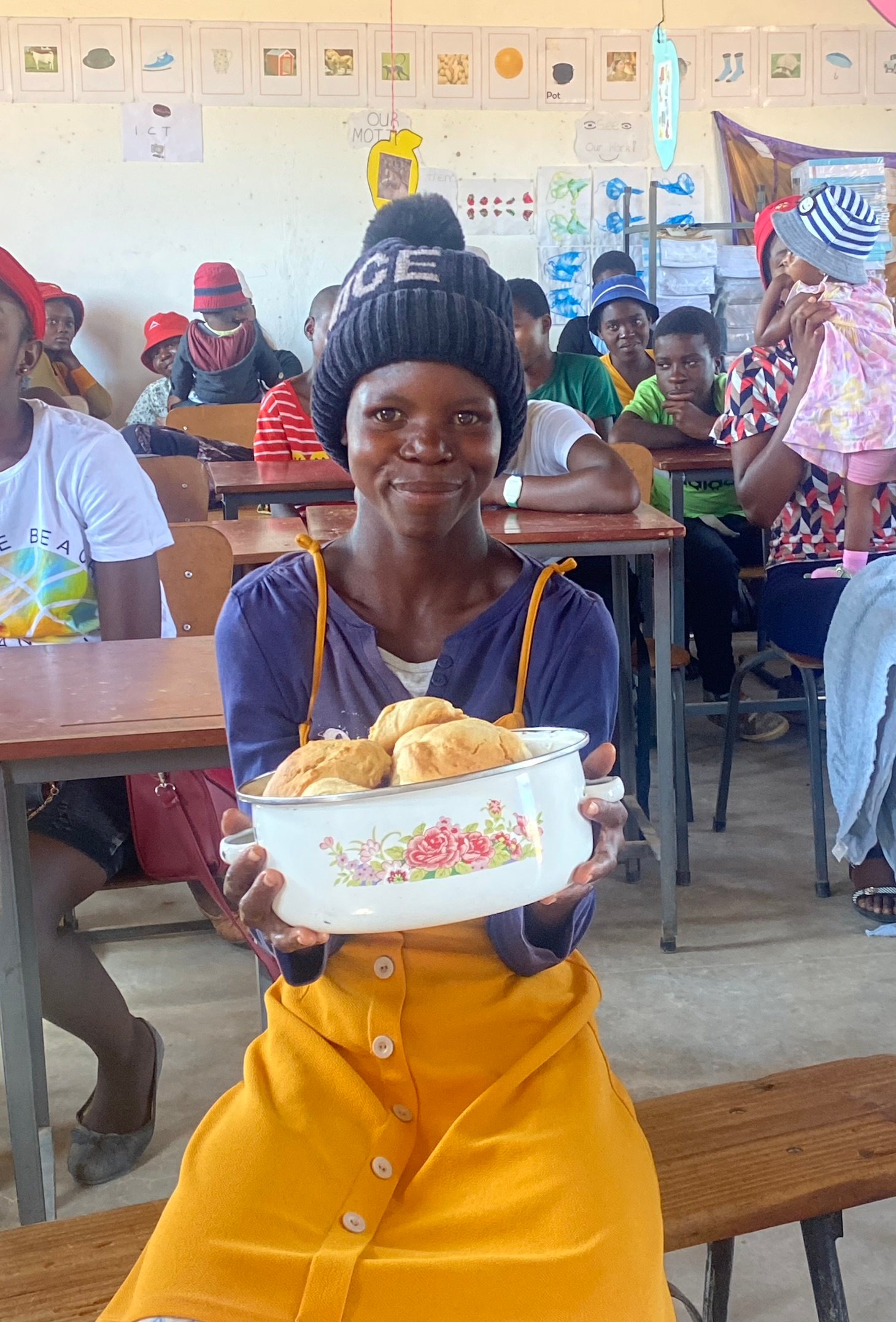 One of the girls we met was 15 year old Nomazulu, who has learning difficulties. Through SAGE she has learned to bake delicious scones and sell her products in the school and the community. Other girls were charging $3 to community members for new hairstyles, using hairdressing skills they had learned through the programme.
One of the girls we met was 15 year old Nomazulu, who has learning difficulties. Through SAGE she has learned to bake delicious scones and sell her products in the school and the community. Other girls were charging $3 to community members for new hairstyles, using hairdressing skills they had learned through the programme.
Sustainable Support
While the project is coming to an end, a huge amount of work has been done to ensure that SAGE continues at every learning hub beyond the official project end. It was very encouraging to meet the Hub Development Committees (HDC) that had been set up and hear how much they cared about SAGE.
Sitting with one HDC under a tree near to the classroom, members of the committee told us that the greatest change they had seen was those girls that had never been to school could now read and write. They also highlighted the fact that girls with disabilities were being supported with assistive devices such as wheelchairs and were able to improve their social skills through attending the hubs with other girls. The HDC reported that this had also helped in changing attitudes of the community towards persons with disabilities.
The vice chair of the HDC told us that ‘the gift of this project comes with a responsibility’ as there are neighbouring communities asking about the SAGE model and how to do it. HDCs are currently being supported by the programme to develop community-based action plans and have been given some funds to start small incentive schemes, such as poultry rearing, to be able to continue to support the programme. CBM have also been setting up referral and service pathways with local Organisations of People with Disabilities (OPDs) to ensure the girls with disabilities and their families continue to get support.
CBM and its SAGE partners continue to advocate to the Government of Zimbabwe to also provide support and take full ownership of this hugely impactful project, so that girls with disabilities and other marginalised girls can continue to benefit.
This project is led by Plan International, with specialist support from CBM to ensure the inclusion of girls with disabilities. It is funded by UK Aid from the UK government, through the Girls’ Education Challenge.

